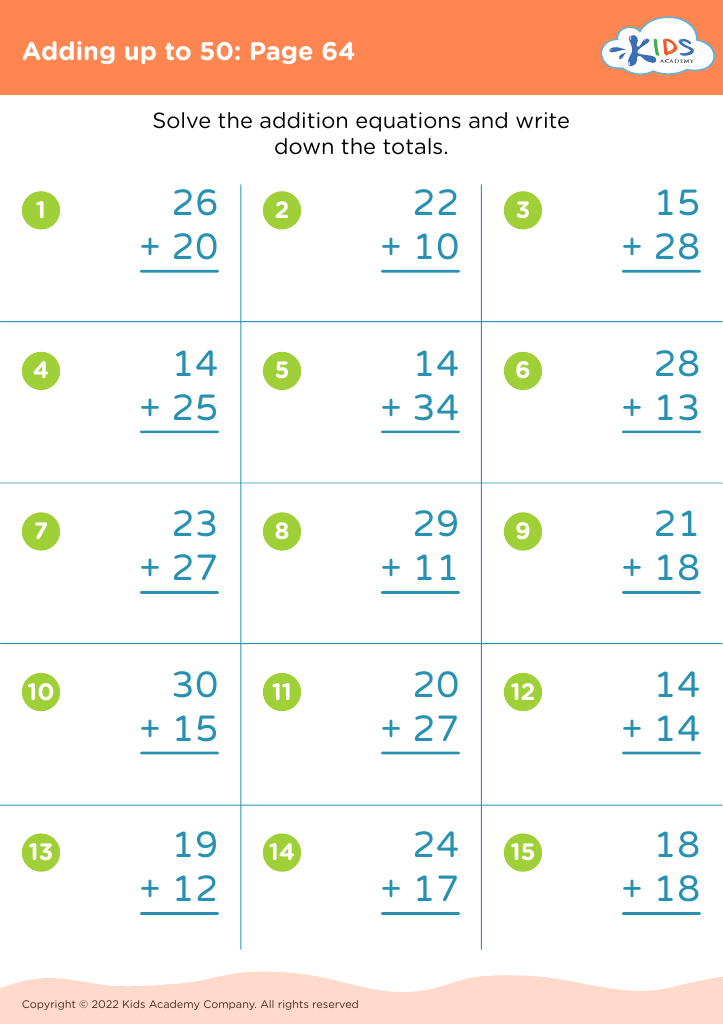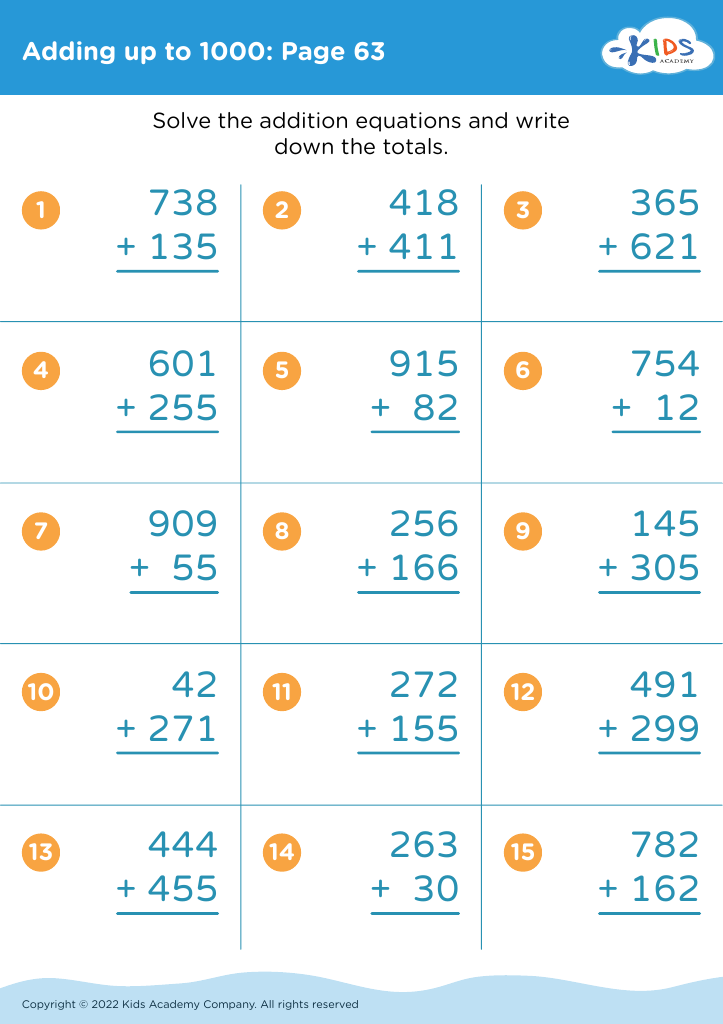Comparing numbers Addition & Subtraction Worksheets for Ages 5-8
4 filtered results
-
From - To
Boost your child's mathematics skills with our "Comparing Numbers Addition & Subtraction Worksheets" designed for ages 5-8. Ideal for early learners, these engaging and interactive worksheets help reinforce essential concepts in addition and subtraction while introducing number comparison techniques. Our colorful, easy-to-follow sheets encourage kids to identify which numbers are greater or smaller, fostering critical thinking and problem-solving abilities. With a variety of exercises, children will enjoy practicing their math skills while building confidence. Printable and convenient, these worksheets are perfect for home or classroom use, making learning fun and effective. Start your math journey today!
Parents and teachers should prioritize the understanding of comparing numbers, addition, and subtraction for children aged 5-8 because these skills form the foundation for more complex mathematical concepts. Early mastery of comparing numbers enables children to discern greater or lesser values, which is crucial for problem-solving and critical thinking.
Additionally, addition and subtraction skills are fundamental to everyday life, allowing children to navigate situations such as sharing, budgeting, and basic measurements. Proficiency in these areas boosts their confidence in math, setting a positive attitude toward learning as a whole.
Moreover, developing these skills in a supportive environment encourages a love for mathematics, stimulating curiosity and a willingness to tackle new challenges. Engaging activities, such as games that incorporate number comparison or simple word problems involving addition and subtraction, can make learning enjoyable and interactive.
If parents and teachers actively support these fundamental concepts, they help cultivate not only mathematical competence but also resilience and perseverance in learning. These early experiences create a strong mathematical foundation that will benefit children throughout their education and future endeavors, fostering both academic success and practical life skills.
























